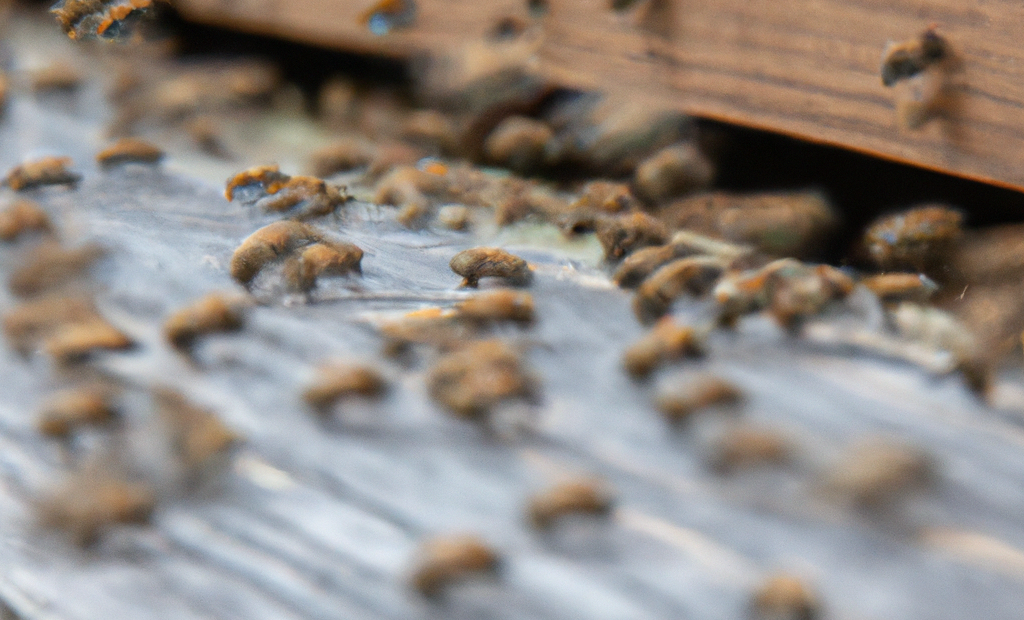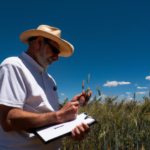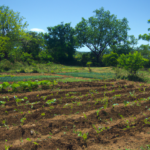Bees play an essential role in organic farming and pollination, contributing to biodiversity and food production. Biofertilizers and other agricultural products, ecological alternatives to chemical fertilizers, are safe for bees and increase crop productivity. Organic farming, which avoids harmful pesticides and promotes soil health, is vital to protecting bees and creating a more sustainable environment. However, conventional fertilizers, especially neonicotinoids, can be harmful to bees and pollination.
In a world that is becoming increasingly aware of environmental issues and the importance of organic farming, bees play a crucial role in preserving natural balance. This article will delve into the critical role that bees play in agriculture and pollination, and address the urgent need to protect these tireless workers of nature. We will analyze the crucial role of bees in organic farming and pollination, the importance of their interaction with biofertilizers for effective pollination, and how agricultural products can contribute to their protection and support. Finally, we will evaluate how fertilizers impact bee health and, consequently, pollination. Thus, we hope to provide a comprehensive vision of the importance of bees and their interaction with the key elements of sustainable agriculture.
- 1. "The Crucial Role of Bees in Organic Agriculture and Pollination"
- 2. "The Importance of Bees in the Use of Biofertilizers for Pollination"
- 3. "How Agricultural Products Can Protect and Support Pollinating Bees"
- 4. "Fertilizers and their Impact on Bee Health and Pollination"
1. "The Crucial Role of Bees in Organic Agriculture and Pollination"
Bees play a crucial role in organic farming and pollination, contributing significantly to biodiversity and food production. Within the framework of organic farming, bees act as natural pollination agents, helping to fertilize plants by transferring pollen from the stamens to the pistils, allowing the production of fruits and seeds. This natural process reduces the need for chemical fertilizers, supporting the principles of organic farming. Additionally, in an effort to protect bees and improve soil health, many organic farmers choose to use biofertilizers and other agricultural products that are safe for bees. These joint efforts make bees an indispensable part of the agricultural ecosystem, supporting both the preservation of the environment and the production of healthy food.
2. "The Importance of Bees in the Use of Biofertilizers for Pollination"
Bees play a crucial role in utilizing biofertilizers for pollination, an essential component of organic farming. As natural pollinating agents, bees facilitate the transfer of pollen from male to female flowers, a process that is vital for fruit and seed production. Biofertilizers, which are fertilizers derived from living organisms, are becoming a popular alternative to chemicals for agriculture as they are friendlier to the environment and improve soil quality without causing harm to these important insects. The presence of bees in agricultural fields improves the effectiveness of biofertilizers, which in turn increases crop productivity. Therefore, protecting bees and promoting greener agricultural products, such as biofertilizers, are vital steps towards sustainable and environmentally beneficial agriculture.
3. "How Agricultural Products Can Protect and Support Pollinating Bees"
Organic farming can play a crucial role in protecting and supporting pollinating bees. Instead of using harmful chemical pesticides that can wipe out bee colonies, farmers can opt for more environmentally friendly biofertilizers and other agricultural products. Biofertilizers, which are nutrient-rich substances that promote plant growth, are not only safe for bees, but can also help provide a more nutritious and abundant food source for them. Additionally, the use of organic farming products, such as biofertilizers, can help create a healthier and more sustainable environment for bees, promoting biodiversity and reducing soil and water pollution. Thus, fertilizers and other agricultural products can be valuable tools to protect and support pollinating bees.
4. "Fertilizers and their Impact on Bee Health and Pollination"
Fertilizers, widely used in conventional agriculture, represent a significant danger to bee health and, therefore, to pollination. Among the harmful elements that these products may contain, neonicotinoids stand out, insecticides that attack the nervous system of bees and can disorient, weaken or even kill them. This has a direct negative impact on pollination, since if the bee population decreases, the pollination capacity in crops and in nature also decreases. Given this problem, organic farming is presented as a sustainable alternative, promoting the use of biofertilizers, agricultural products that are respectful of the environment and do not harm the health of bees. These biofertilizers, made from organic matter, provide necessary nutrients for plants without causing harm to pollinators.
The role of bees in pollination is vital for the sustainability of our organic agriculture, and their protection is a shared responsibility. Bees are not only essential in the pollination process, but are also essential in the use of biofertilizers, thus increasing their effectiveness and contributing to the maintenance of healthy ecosystems. Agricultural products, especially fertilizers, must be selected carefully, taking into account their impact on bee health and their pollinating function. Therefore, it is crucial that we continue to develop and use agricultural products and practices that protect and support these hardworking creatures. Ultimately, the future of our organic farming depends on how we manage and care for our pollinating bees. In summary, respect and care for bees is essential to maintain and improve the sustainability and productivity of our agriculture.


